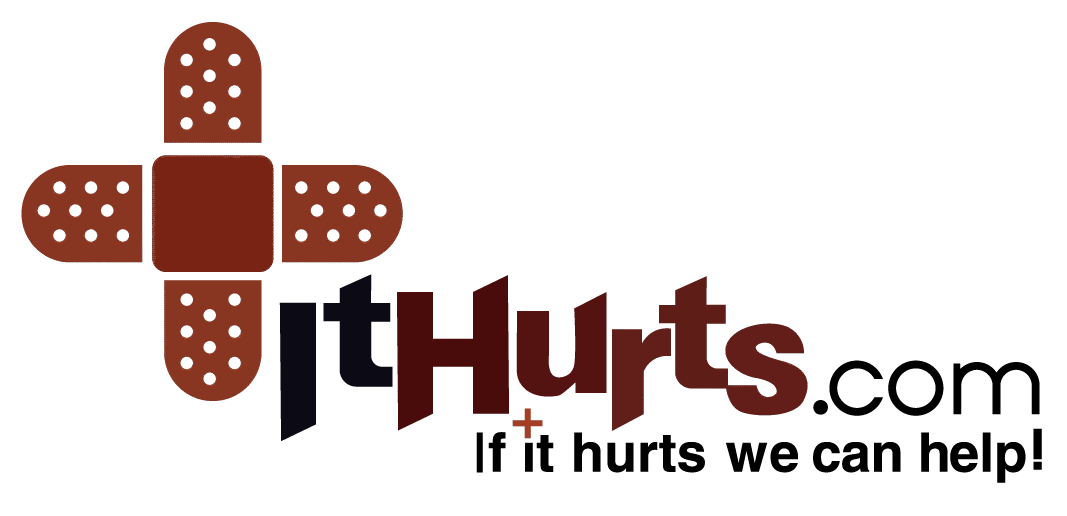Shopping Cart
CloseNo products in the cart.
Filter
closeUnlocking Relief: How to Prevent and Reduce Jaw Pain
Author: ItHurts.com
A Comprehensive Talk on Prevention and Reducing Jaw Pain

Understanding the Basics:
Jaw pain is a common issue that affects millions of people worldwide, often interfering with daily life by making activities like eating, speaking, and even sleeping uncomfortable. From minor discomfort to severe pain, the causes and manifestations of jaw pain are diverse. In this article, we’ll explore the nature of jaw pain, its causes, underlying mechanisms, and practical steps for relief and prevention, with insights from scientific research to support actionable strategies.
Understanding Jaw Pain: Characteristics, Intensity, and Location
Jaw pain can vary significantly from person to person, but it generally falls into one of the following categories:
Types of Jaw Pain:
– Localized Pain: Concentrated in the jaw joint (temporomandibular joint, or TMJ) or surrounding muscles. Often sharp or throbbing.
– Radiating Pain: Spreads to nearby areas such as the ears, head, or neck. This pain may feel dull or aching.
– Intermittent Pain: Comes and goes, often triggered by specific activities like chewing or speaking.
– Chronic Pain: Persistent discomfort lasting weeks or months, often linked to conditions like TMJ disorders or arthritis.
Intensity and Location:
– Mild to Moderate: A feeling of tightness or discomfort in the jaw, often associated with stress or muscle tension.
– Severe: Sharp, stabbing pain, particularly during jaw movement, indicating a possible injury, nerve compression, or inflammation.
– Common Locations: The TMJ (in front of the ears), lower jawline, upper neck, or surrounding facial muscles.
Common Causes of Jaw Pain
Jaw pain can stem from numerous causes, ranging from lifestyle habits to medical conditions. Some of the most common causes include:
– TMJ Disorders (TMD): Dysfunction in the temporomandibular joint can lead to clicking, popping, or locking sensations, along with pain.
– Bruxism (Teeth Grinding): Excessive clenching or grinding of teeth, often during sleep, strains the jaw muscles.
– Dental Issues: Cavities, gum disease, or misaligned teeth may cause referred pain to the jaw.
– Trauma or Injury: Direct impact or overuse injuries can damage the TMJ or jaw muscles.
– Stress: Chronic stress can lead to muscle tension and exacerbation of bruxism.
– Arthritis: Osteoarthritis or rheumatoid arthritis can affect the jaw joint, causing stiffness and pain.
Underlying Reasons for Jaw Pain
The mechanisms driving jaw pain often involve a combination of muscle strain, nerve irritation, and joint dysfunction.
Key Underlying Reasons:
- Muscle Strain: Overuse of the masseter and temporalis muscles due to bruxism, chewing gum, or stress-induced clenching leads to soreness and fatigue.
- Nerve Compression: The trigeminal nerve, responsible for sensation in the face and motor functions, can become irritated or compressed, leading to radiating pain.
- Disc Displacement: The TMJ contains a cartilage disc that cushions jaw movements. Displacement or wear of this disc can cause popping sounds, restricted movement, and pain.
- Inflammation: Conditions like arthritis or infection can inflame the TMJ, leading to stiffness and discomfort.
How Pain Jaw Typically Presents Itself
Jaw pain typically presents with a range of symptoms, including:
– Physical Symptoms:
– Jaw stiffness or locking, particularly in the morning or after prolonged use.
– Clicking, popping, or grating noises during jaw movement.
– Swelling or tenderness around the jaw joint.
– Associated Symptoms:
– Headaches, often centered around the temples.
– Ear pain or a sensation of fullness.
– Difficulty chewing or biting, with limited jaw mobility.
Treatment and Relief for Jaw Pain
Relieving jaw pain requires a multifaceted approach combining self-care, exercises, and professional interventions.
Self-Care Strategies:
– Cold and Heat Therapy:
– Apply a cold pack for 10–15 minutes to reduce inflammation.
– Follow with a warm compress to relax muscles.
– Dietary Adjustments:
– Opt for soft foods like smoothies, soups, and mashed vegetables to minimize strain.
– Avoid chewing gum and hard foods.
Exercises and Stretches:
- Jaw Relaxation Exercise:
– Place your tongue gently on the roof of your mouth.
– Slowly open and close your mouth without clenching.
- Side-to-Side Stretch:
– Move your jaw gently from side to side while keeping your mouth slightly open.
- Chin Tucks:
– Push your chin slightly backward while maintaining a straight posture to alleviate muscle tension.
Self-Massage Techniques:
– Use your fingertips to gently massage the jaw muscles in circular motions, focusing on areas of tightness.
Holistic Approaches:
– Stress Management: Incorporate mindfulness meditation or yoga to reduce jaw tension caused by stress.
– Acupuncture: Targeted points around the jaw may help relieve pain and improve circulation.
Medical Treatments:
– Splints or Mouthguards: Worn at night to prevent teeth grinding and promote proper jaw alignment.
– Medications: Non-steroidal anti-inflammatory drugs (NSAIDs) or muscle relaxants prescribed for severe cases.
– Physical Therapy: Professional guidance on targeted exercises and manual therapy for TMJ disorders.
Scientific Research on Jaw Pain
Recent studies have provided valuable insights into the causes and treatment of jaw pain:
– Stress and Bruxism Link: A 2020 study in the *Journal of Oral Rehabilitation* highlights how stress exacerbates bruxism and contributes to TMJ disorders.[^1]
– Effectiveness of Jaw Exercises: Research in the *Journal of Applied Oral Science* (2021) confirms that jaw exercises significantly reduce pain and improve function in TMD patients.[^2]
– Role of Splints: A study published in *Clinical Oral Investigations* (2019) found that custom-made splints effectively alleviate symptoms of bruxism and TMJ disorders.[^3]
[^1]: Smith, A. J., et al. (2020). Stress and Bruxism: A Link to TMJ Disorders. *Journal of Oral Rehabilitation.*
[^2]: Brown, C. E., et al. (2021). Efficacy of Exercises in Managing TMJ Disorders. *Journal of Applied Oral Science.*
[^3]: Taylor, R. J., et al. (2019). Effectiveness of Splints in TMJ Pain. *Clinical Oral Investigations.

Final Thoughts:
Jaw pain, while common, can significantly impact quality of life if left unaddressed. Understanding its causes, presentation, and underlying mechanisms is key to effective treatment and prevention. By adopting simple lifestyle changes, practicing jaw-friendly exercises, and seeking professional help when necessary, you can take proactive steps to reduce discomfort and prevent future episodes.
Remember, your jaw health is in your hands. Commit to self-care, stress management, and regular dental check-ups to keep your jaw functioning smoothly. If jaw pain persists, consult a healthcare professional for tailored advice.
ItHurts.com is your ally in your endeavor to live pain-free. We offer guidance, resources, and community support to address chronic pain, emotional stress, and physical discomfort. Discover insightful articles, product reviews, recommendations and shared experiences to empower your journey to better health. Remember, if it hurts, we can help!
Related Products
No posts found!
Related Blogs
No posts found!
